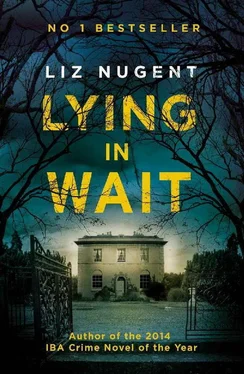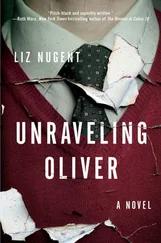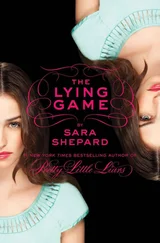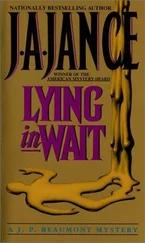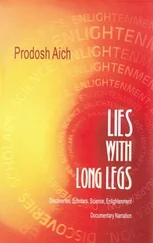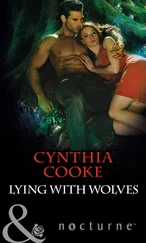Granny Fitz didn’t like Helen. She said she was ‘uncouth’ and ‘common’. I concede she was probably uncouth, but she definitely wasn’t common. There were not too many girls like Helen. She and I met up in a pub a few times, but Granny smelled alcohol on my breath and tried to ground me. She belittled my outrage and insistence that I was an adult and could legally drink now, challenging me to earn the money to pay for it. She didn’t know about the cheques my mother had signed. Granny insisted that I needed to study and that I should put Helen ‘on ice’ until after the exams. I agreed that I would only see her at weekends, but I lied and said I was going to the library when I went to see Helen during the week.
Under Granny’s regime, there was four months of food rationing, restricted pocket money and enforced labour. After the first six weeks, we kind of got used to each other. We lived in an atmosphere of mutual intolerance, but as time went on we became almost cordial. I put it down to Stockholm syndrome. The IRA hunger strikes were in the news. I wondered if my grandmother was making some kind of political point with our tiny meals. There was nothing that drove Granny Fitz to distraction more than seeing me seated, particularly in front of the television. I was allowed only to watch Little House on the Prairie , The Waltons and The Angelus . Everything else was off-limits. The only other time I was allowed to sit down was to study.
I don’t know why I could no longer study, but I had just lost interest. There didn’t seem to be any point to it any more. I was anxious about my mother, and Annie Doyle was still haunting my dreams. So when I was sent to study, I mostly just wrote mad fantasy stories in which I was saving Annie Doyle, or going for dinner with Annie Doyle, or having sex with Annie Doyle. I kept the Marnie bracelet under my pillow. If only Granny had known. She invented jobs to keep me on my feet. She had me digging up hedges through permafrost in February, carrying rubbish from the attic to the shed at the end of the garden, and then back up again. She offered me as a dog walker to a dotty old neighbour.
Granny Fitz made no secret of the fact that she thought my mother was weak and selfish. Granny had lost a son, her ‘flesh and blood’, and ‘you don’t see me languishing in an institution, leaving a poor child to fend for himself’. I suppose I must give her some credit for acting in what she thought were my best interests. She must have known that I despised her by my permanently surly mood and scowling expression, but she ignored my bad attitude and put a lock on the fridge. Once or twice I heard her sniffing or crying, but when I came into the room she would quickly dab her eyes and bark an order at me. I realized that she was mourning her son.
I visited Mum every week and complained bitterly about Granny, but my mother wasn’t really able to respond in any meaningful way, not for ages. I would try to remind her of happier times and point out all the charms on her bracelet to remind her of the significance of each one, but there never seemed to be any visible improvement. I worried that she might never recover. She would sit beside me and stroke my face and smile at me like a blind person might. The medication was doing its thing, I suppose, allowing her mind to heal.
Eventually, she began to engage a little bit, talking about the stories in the newspapers and the TV shows she watched. She was growing painfully thin and complained of not being able to sleep because of her new medication. She gradually began to notice me again. She wanted to get better. She was terrified of being locked up for ever.
One day she told me, ‘At least there’ll be no more miscarriages. Now that Dad’s gone.’ Her eyes brimmed.
‘I’ll look after you, Mum,’ I promised.
Her eyes brightened and warmth returned to her face, and I began to hope that she might soon be back to her old self.
One day, I returned from school to find that my grandmother had bought me a whole new set of casual clothing. Her choices were surprisingly fashionable: proper jeans, jackets, T-shirts, sweatshirts, pullovers. I was used to elasticated waists and plus-size jumpers.
‘Don’t you ever look in the mirror?’ she said.
The answer was no. Usually I avoided the mirror, or else only took in isolated parts – the recurring spot on my chin, the bruise on my knee where I’d been pushed against the wall at school, the tuft of hair behind my left ear that refused to be flattened by Brylcreem or comb.
‘Go up and try them on,’ she said. ‘I can return anything that doesn’t fit.’
I went up to Mum’s room because there was a full-length mirror in there. Even as I passed the mirror to lay the clothes on the bench, I got quite a surprise. The person looking back at me was unfamiliar. I won’t exaggerate, I was still fat, but I had certainly lost some chins and a few rolls of flab around my stomach. My face had structure and I could see the rounded top of my cheekbones. With the increased physical activity and tiny portions, I should have expected to be losing weight. I had noticed that my collars had loosened up, but the elasticated waistbands had obviously adjusted by themselves. Helen had said something about how she was glad that I was making an effort for her, but I hadn’t understood until now what she meant. Most of the new clothes fitted well. I looked, for the first time in over two years, merely chubby, as opposed to obese. Maybe my Star Wars T-shirt would fit now.
I stood back and did a twirl, and when I turned again to face the mirror, Granny Fitz was standing in the doorway, looking at me with pride and satisfaction.
‘You’re almost there. That’s what you’re supposed to look like. I know I’ve been hard on you, but I needed you to see what you could be, without making you self-conscious about it.’
I was tongue-tied. If this had been a film, I would have run over and hugged her, but it wasn’t. My grandmother was not the tactile type. We had never exchanged hugs or kisses. We stood smiling awkwardly at each other.
‘Your mother is coming home on Tuesday. She is better than she has been since Andrew’s death,’ she sniffed. ‘I’m sure she cares about you, but you mustn’t allow yourself to get into that condition again. You could be a very handsome young man. Look!’ She indicated the mirror.
I looked hard and saw the man and not the boy. But the boy in me was excited. Mum was better! I couldn’t wait for things to get back to normal, whatever the new normal was going to be, without Dad. I beamed at Granny, and for a moment there was a truce. And then she ruined everything by turning me to face the mirror and saying, ‘See? You are just the image of your father.’
The Saturday morning before my mother’s homecoming, we were in the kitchen and Granny pointed to the flower bed beyond the window. ‘That’s still a mess. Would you go out and fix it up? When was it planted?’
I couldn’t remember exactly, but I knew it hadn’t been there for that long before Dad died. I grumbled and delayed, but Granny insisted. ‘I can’t believe Andrew left it like that with random plants just dumped into the earth. Go on out and dig the whole thing up. There’s some dahlia tubers ready to go in the potting shed. It all needs to be replanted. Go on now, it will be a nice surprise for your mother. You can do it on your study breaks.’
It was April now, almost Easter, and it was still whip cold outside, though there had been no frost that week. I wrapped up in a woolly hat and cardigan and Dad’s wellington boots, and fetched the shovel and rake from the shed. As I began to dig at the edge of the raised bed, I discovered a granite border about six inches below the surface. I remembered old black-and-white photographs of an ornamental pond at this spot with a bird bath at its centre, and it occurred to me that maybe it would cheer up Mum if I could restore the pond to its former glory.
Читать дальше
